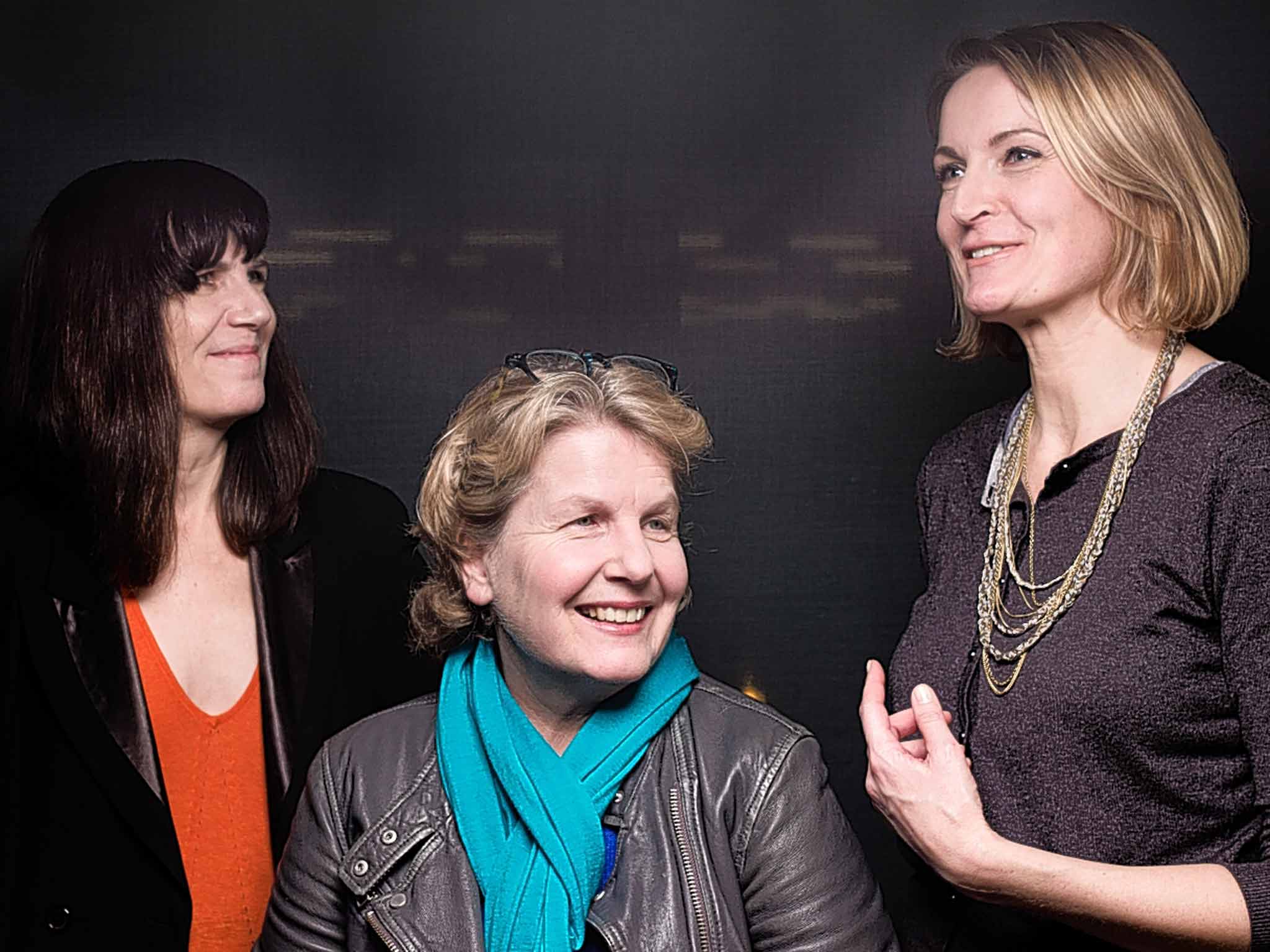What is behind the rise and fall of the Women’s Equality Party?
Populism is making it harder than ever to bring about change, says the movement co-founded by Sandi Toksvig. Sean O’Grady looks at what it achieved and what could be next


Leaders of the Women’s Equality Party (WEP) propose to wind up their organisation. A statement issued by its executive committee, endorsed by co-founders Sandi Toksvig and Catherine Mayer, declares: “The truth is, despite the phenomenal efforts of our team, tireless activists and brilliant members, we can no longer see a way to make this work. Everybody is struggling, particularly women.
“Populism has gained ground and people are more and more polarised. We cannot, with the resources we have, and the political landscape as it is, deliver the change we were founded to make.” A special online party conference on 17 November will be asked to approve the decision.
Why is this happening?
It’s not because their work is done, or that equality – or anything like it – has been achieved. As with all smaller parties who lack philanthropic plutocrats to fund them, they are short of money – though the party says this is not the principal reason for the end of this feminist dream.
The WEP’s executive committee argues that the party’s earlier, successful strategy was not to catapult itself into power but to act as a pressure group, and to contest elections so that the other parties were pushed into taking equality and the feminist cause more seriously – thereby changing policy and attitudes.
The WEP claimed success with this, but its executive committee has now come to the conclusion that the rise of populism has made it too difficult to sustain: “We set out to demonstrate that people will vote for equality, so that in turn the old parties would shift themselves to look like us. And they did. They stood women against us, took our policies, and sped up progress. But now, instead of pursuing equality, they are weaponising debates about it to create division. That makes our model of creating change less effective.”
What went wrong?
There was that perennial lack of resources, but also the lack of direct political impact – having only modest, indirect influence under the first-past-the-post system of parliamentary elections didn’t help.

Founded in 2015, the WEP’s earlier results were relatively encouraging. For example, a pact with the Liberal Democrats in the Richmond-on-Thames by-election in 2016 helped Sarah Olney to defeat “independent Conservative” Zac Goldsmith, and the party’s leader at the time, Sophie Walker, came sixth in the London mayoralty race with 2 per cent of the vote (beating Ukip).
But despite a couple of impressive wins in council seats, and a laudable campaign against Tory so-called “men’s rights activist” Philip Davies in Shipley, the WEP scored increasingly embarrassing results. It must have been a sobering moment when the present party leader, Mandu Reid, finished 3,000 votes behind Count Binface in the 2021 London mayoral contest – achieving 0.8 per cent and only narrowly beating ultra-crank Piers Corbyn.
At the last general election, in July, the WEP put up four candidates, all of whom lost their deposits, harvesting 1,275 votes in total.
What else happened?
Arguably, the lack of a high-profile leader such as Toksvig didn’t help, and neither did some divisions over the party’s policy surrounding transgender women and gender self-ID, though the issue seems to have been settled comparatively amicably.
For the record, the party believes: “Women, as a class, are discriminated against and oppressed. There is a shared experience as a class, but that discrimination and oppression will often express itself differently for cis women and trans women, just as other factors such as age, ethnicity, economic background and disability are likely to have an impact. Cis inclusivity must never mean trans exclusivity, nor vice versa.”
So self-ID is balanced by a commitment to permit “services – such as domestic abuse refuges – to provide single-sex spaces as allowed by exemptions under the Equality Act, as long as they do so lawfully”.
Generally, the party’s agenda and outlook coincided a bit too much with that of the Greens and Jeremy Corbyn’s Labour Party for the good of the WEP’s electoral ambitions, limited as they were.
What went right?
Lots. The party started with an exciting list of backers including Emma Thompson, Lily Allen, Hugh Quarshie, Tanya Moodie, Jack Monroe, Jo Brand and Rosie Boycott, and a great deal of goodwill. Had those personalities been running for office, it might have been a different story.

At its launch, the WEP enjoyed more than its fair share of media coverage. At its height, party membership was around 60,000 (not far off where Reform UK is now), and it had clear and unarguable objectives: equal representation in politics and business; equal representation in education; equal pay; equal treatment of women by and in the media; equal parenting rights; an end to violence against women; and equality in healthcare and medical research.
What’s next?
It’s a little vague. The party says: “The changes we have won will endure. The communities and friendships we have built together will last. The people who we have brought into politics will continue on in this fight. We have learned so much together that we will each, in our own way, continue to use in the fight against patriarchy.”
Though the WEP was never partisan, and permitted associate membership for members of other parties, it may take some small comfort that Britain now has its first female chancellor; that the female contingent of the parliamentary Labour Party is now bigger than the entire Tory party in the Commons; and that this government has pledged to halve violence against women and girls within a decade. We shall see where Reid, Toksvig and Mayer next choose to make their presence felt and their voices roar.
Join our commenting forum
Join thought-provoking conversations, follow other Independent readers and see their replies
Comments
Bookmark popover
Removed from bookmarks